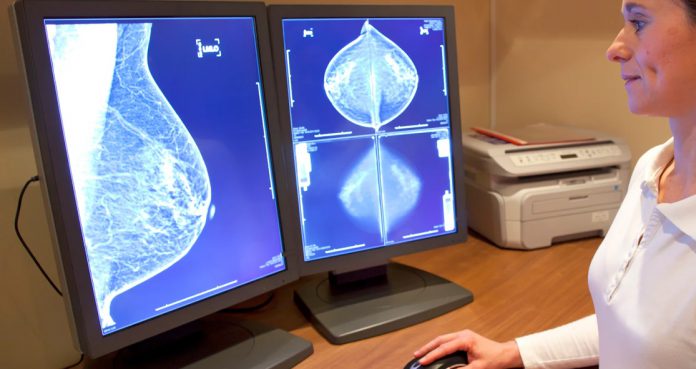A major international genetic study, published in the journal Nature Genetics, has identified more than 350 DNA errors that could increase a woman’s risk of developing breast cancer.
Researchers said these DNA errors offer the “most comprehensive map of breast cancer risk variants to date.” They said these errors could influence more than 190 genes.
The researchers explained that the findings would help them to get a detailed picture of the disease and how these DNA errors could put a woman at a risk of developing breast cancer.
There are some differences in the DNA called genetic variants and the changes in DNA could have a profound effect, increasing the risk of breast cancer.
Most diseases are polygenetic diseases, including breast cancer, in which no single genetic variant or gene causes the disease. However, a combination of genetic variants and genes may increase the risk of developing genetic diseases.
Study author Dr. Laura Fachal from the Wellcome Sanger Institute said, “We know from previous studies that variants across our DNA contribute towards breast cancer risk, but only rarely have scientists have been able to identify exactly which genes are involved.”
“We need this information as it gives us a better clue to what is driving the disease and hence how we might treat or even prevent it,” she added.
The new study compared the DNA of more than 110,000 breast cancer patients to more than 90,000 healthy individuals. The researchers identified 352 genetic variants associated with the risk of breast cancer. It is unclear how many of these DNA errors influence the risk but the researchers were confident that they have identified 191 genes associated with the risk.
Dr. Alison Dunning from the University of Cambridge said, “This incredible haul of newly-discovered breast cancer genes provides us with many more genes to work on, most of which have not been studied before.”
“It will help us build up a much more detailed picture of how breast cancer arises and develops. But the sheer number of genes now known to play a role emphasizes how complex the disease is,” added Dr. Dunning.
The researchers explained that the study findings would help them to figure out genetic testing and explain women of their genetic risk, allowing clinicians and doctors to offer the best strategy to reduce the risk and prevent the disease.
Prof. Doug Easton from the University of Cambridge said, “Our work would not have been possible without the help of the 200,000 volunteers who allowed us to study their DNA. It is also a testament to the work of hundreds of researchers from all over the world who collaborated on this study.”





















